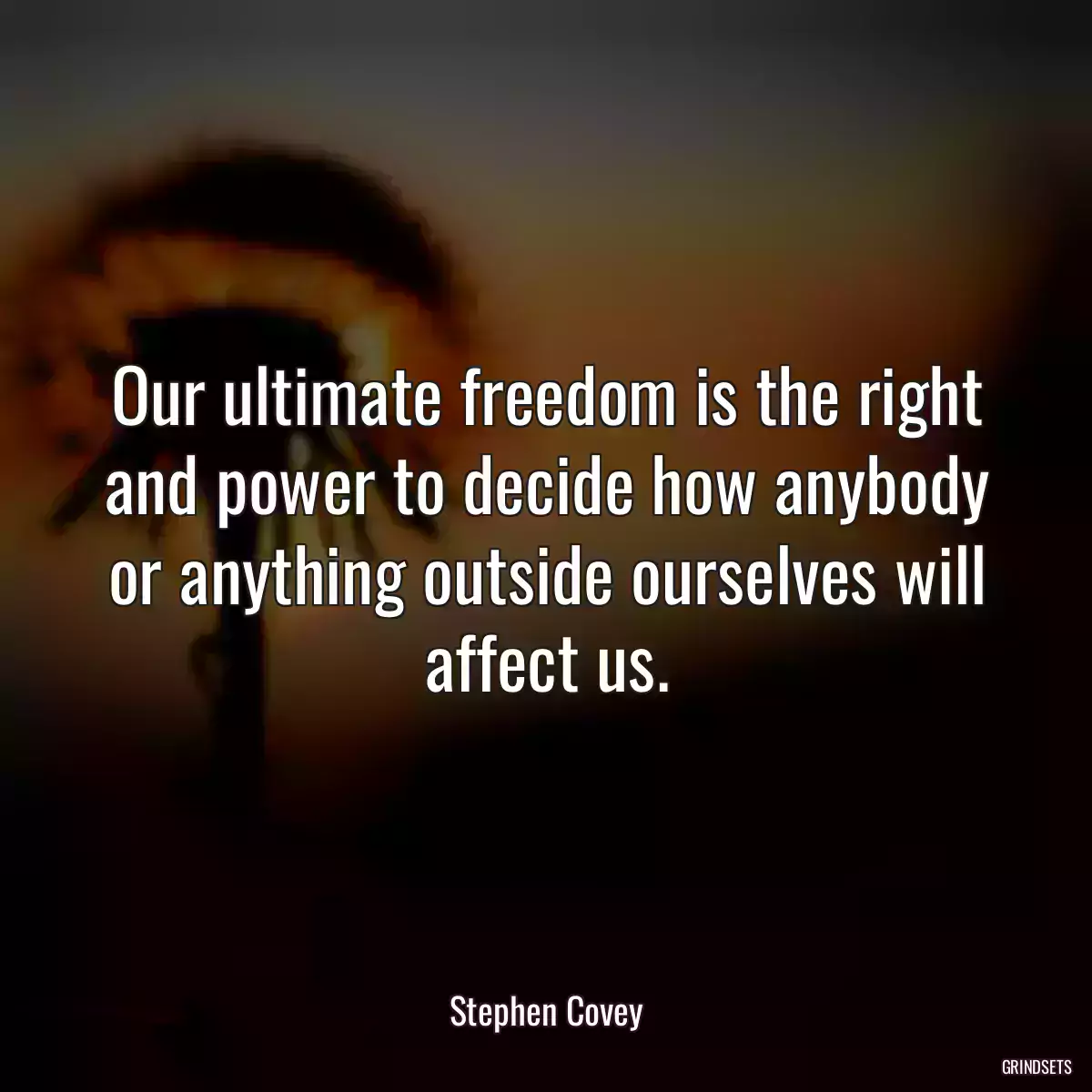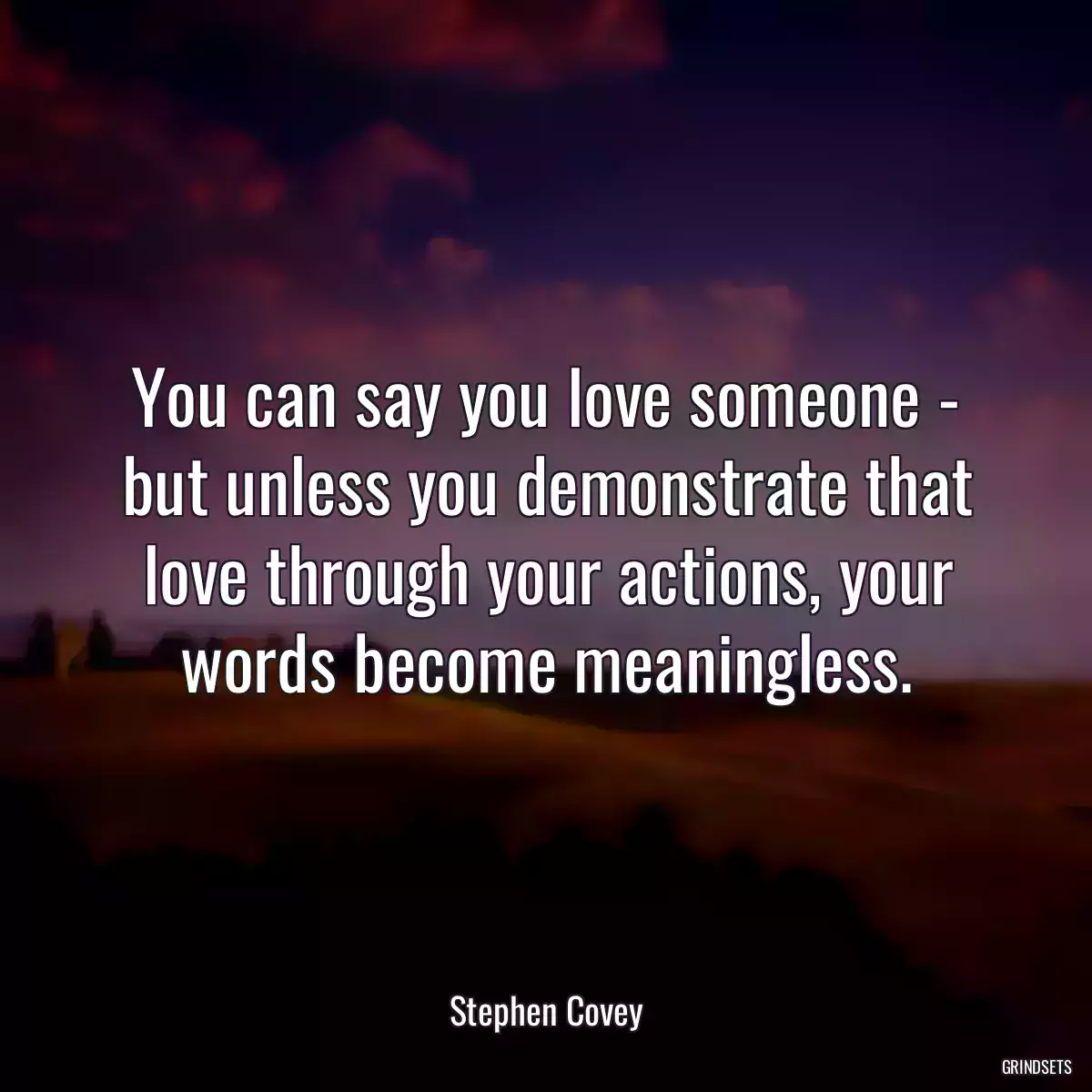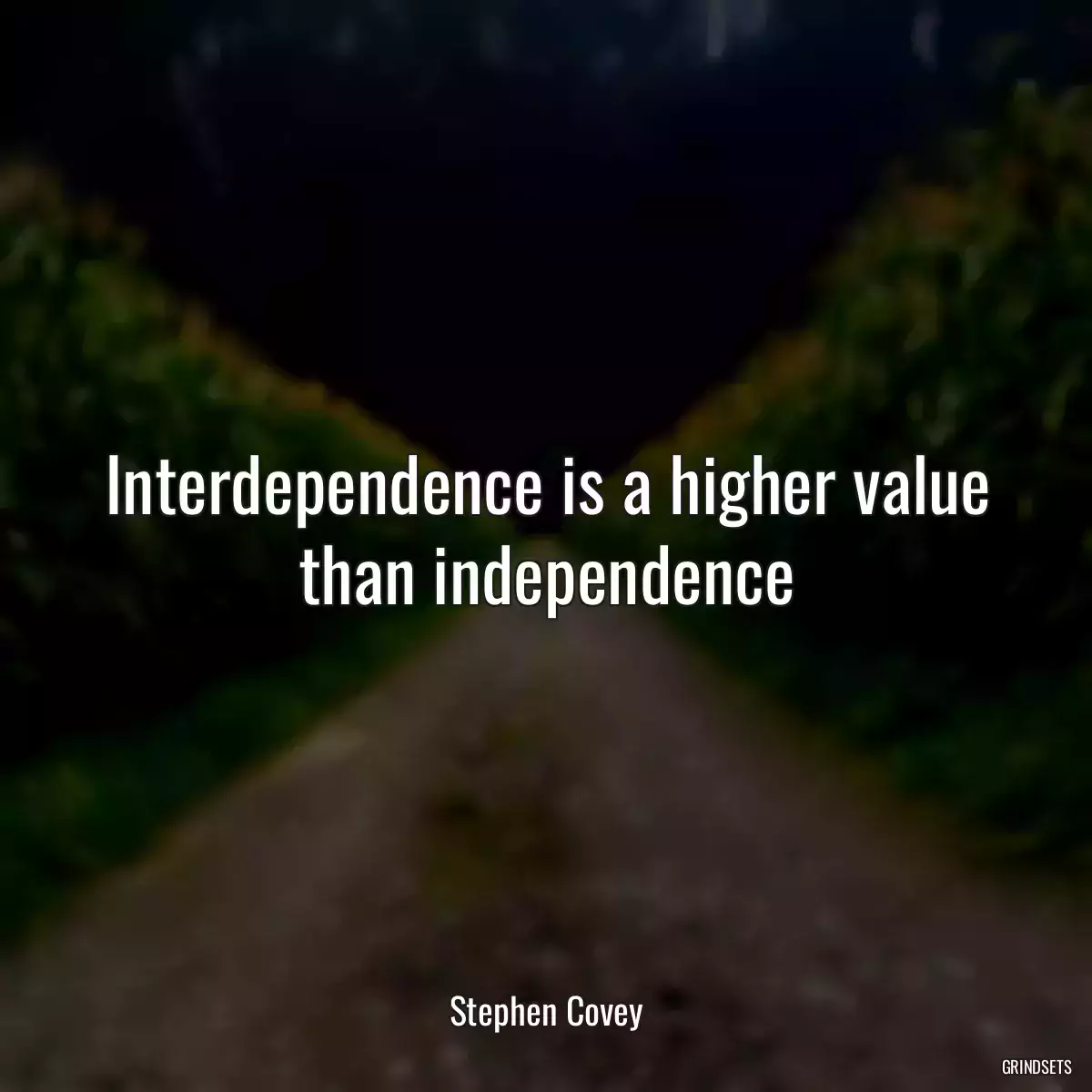
Quotes Stephen Covey - page 10
Find dozens of Stephen Covey with images to copy and share.

Listen to your conscience regarding something that you simply know you should do, then start small on it - make a promise and keep it. Then move forward and make a little larger promise and keep it. Eventually you'll discover that your sense of honor will become greater than your moods, and that will give you a level of confidence and excitement that you can move to other areas where you feel you need to make improvements or give service.
In the space between stimulus (what happens) and how we respond, lies our freedom to choose. Ultimately, this power to choose is what defines us as human beings. We may have limited choices but we can always choose. We can choose our thoughts, emotions, moods, our words, our actions; we can choose our values and live by principles. It is the choice of acting or being acted upon.
It comes from within.
You may also like
Interdependency follows independence.
When life does not go our way or we inadvertently make a mistake, it is so easy to make excuses, place blame on others, or argue that circumstances were against us. But we only progress in life to the extent that we take responsibility for our actions and attitudes, and put forth the initiative necessary to create our own circumstances.
If you are an effective manager of your self, your discipline comes from within; it is a function of your independent will. You are a disciple, a follower, of your own deep values and their source. And you have the will, the integrity, to subordinate your feelings, your impulses, your moods to those values.
When we succumb to believing that we are victims of our circumstances and yield to the plight of determinism, we lose hope, we lose drive, and we settle into resignation and stagnation.
Independent will is our capacity to act. It gives us the power to transcend our paradigms, to swim upstream, to rewrite our scripts, to act based on principle rather than reacting based on emotion or circumstance.

The undisciplined are slaves to moods, appetites and passions
Beginners are many; finishers are few.
Being proactive is more than taking initiative. It is recognizing that we are responsible for our own choices and have the freedom to choose based on principles and values rather than on moods or condition. Proactive people are agents of change and choose not to be victims, to be reactive, or to blame others.
The fire inside people is like a match; the way to ignite that flame is initially through friction, then other matches are lit through warmth.
Suppose you were to come upon someone in the woods working feverishly to saw down a tree.
"What are you doing?" you ask.
"Can't you see?" comes the impatient reply. "I'm sawing down this tree."
"You look exhausted!" you exclaim. "How long have you been at it?"
"Over five hours," he returns, "and I'm beat! This is hard work."
'Well, why don't you take a break for a few minutes and sharpen that saw?" you inquire. "I'm sure it would go a lot faster."
"I don't have time to sharpen the saw," the man says emphatically. "I'm too busy sawing!
The personal power that comes from principle-centered living is the power of a self-aware, knowledgeable, proactive individual, unrestricted by the attitudes, behaviors, and actions of others or by many of the circumstances and environmental influences that limit other people.
People who end up with the good jobs are the proactive ones who are solutions to problems, not problems themselves, who seize the initiative to do whatever is necessary to get the job done.
We must never be too busy to take time to sharpen the saw.
You may also like

Habit 7 is taking the time to sharpen the saw. By renewing the four dimensions of your nature - physical, spiritual, mental and social/emotional, you can work more quickly and effortlessly. To do this, we must be proactive. This is a Quadrant II (important, not urgent) activity that must be acted on. It's at the center of our Circle of Influence, so we must do it for ourselves.